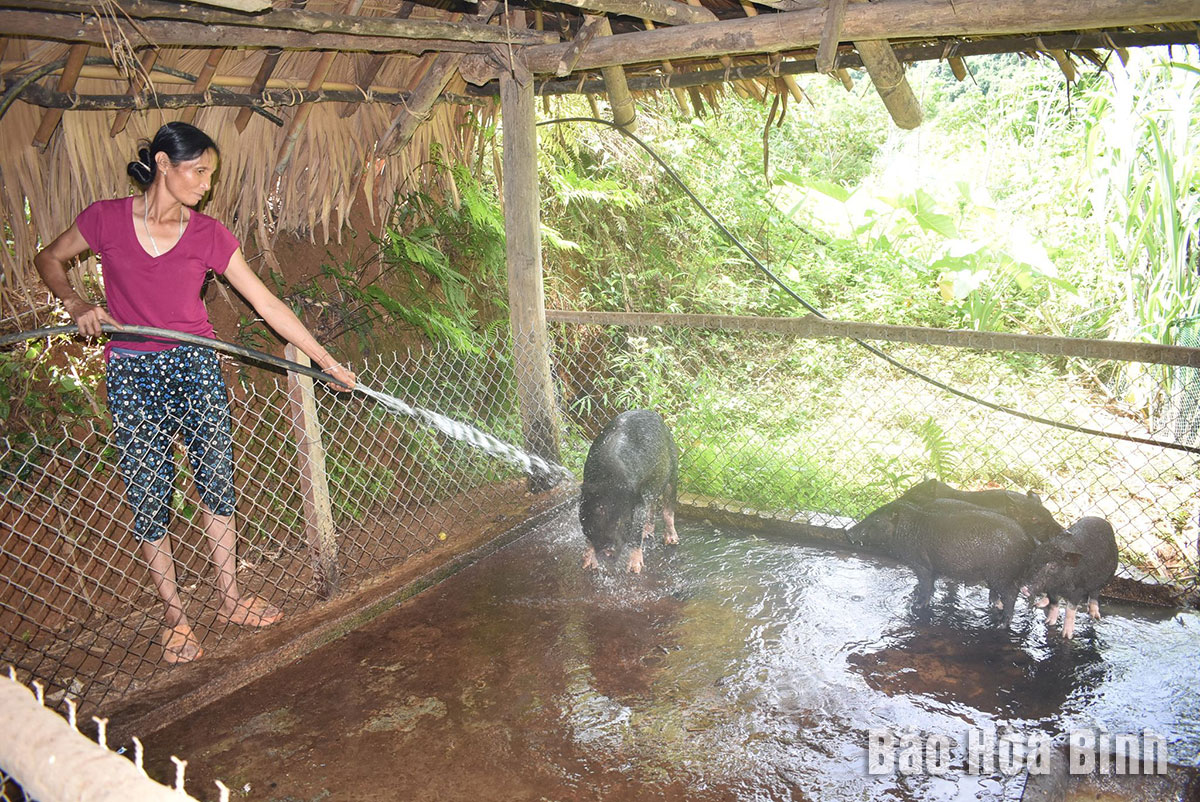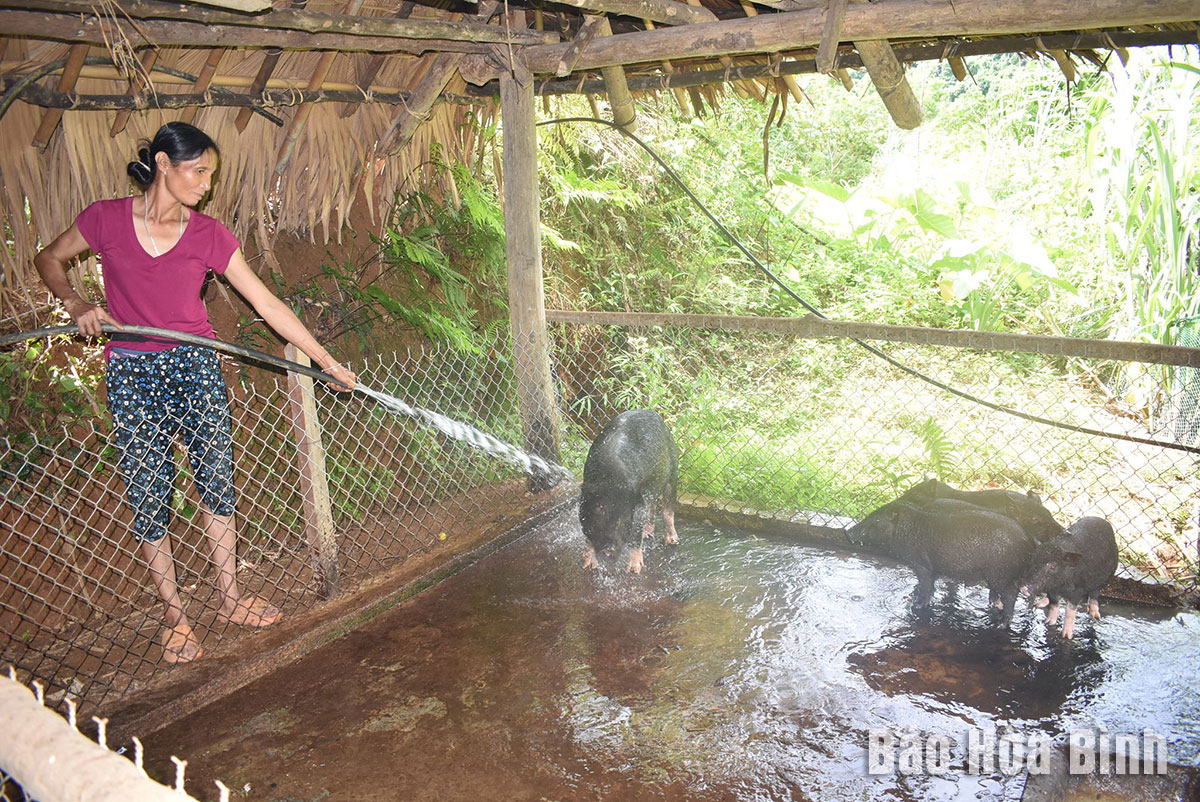
(HBO) - Established in August 2022, Tam Cuong Tan Minh multi-industry cooperative (Da Bac) chose to raise the local indigenous pig breed and supply pork products under the brand of Tan Minh. This pig breed has small legs, a small muzzle, delicious meat, and a slim belly with little fat. They easily adapt to the harsh living environment, and have been around in Da Bac district for a long time.

Xa Thi Sinh, Tram hamlet, Tan Pheo commune (Da Bac),
raises indigenous pig to help increase livelihoods and income.
Ha Thi Tam, Chairwoman of the Board of Directors and
Director of the cooperative, said that before the cooperative was set up, her
family had supplied indigenous pork products in Da Bac district to many
markets. As pigs are raised in gardens and hills, they have delicious meat. To
date, the cooperative has about 2,000 heads of native black pigs raised by 53
households.
Products are supplied to such markets as Hanoi, Hai Phong,
Hung Yen, Hai Duong, Bac Ninh and Hoa Binh.
Xa Thi Sinh, Tram hamlet, Tan Pheo commune, said that after
her family has raised a herd of more than 10 heads, feeding them with
vegetables in the garden. This kind of pig is easy to sell at a high price and
at any time.
Ha Van Vung in Tram hamlet, Tan Pheo commune, who has been
raising indigenous pigs for many years, shared: "Previously, I raised only a
few heads of pigs for family use. Compared to other pig breeds, this breed
grows slowly, but the cost is low while the cooperative's purchasing price is
always high and stable. Economically, raising pigs is still more effective than
raising other livestock, so my family expanded our herd. With an area of about
3 hectares, my family fenced a hill to raise more than 70 heads of pigs, the
barn is simple, and we do not have to take much care of them. I plan to
continue multiplying the herd to about 200 heads. This is a suitable direction
for locals in mountainous Da Bac district”.
According to data from the Hoa Binh Provincial Party Committee, the industrial production index for the first six months of 2025 is estimated to have increased by 20% compared to the same period last year. This marks the highest year-on-year growth rate for this period since 2020.
In the first six months of 2025, Hoa Binh province’s export turnover was estimated at 1.145 billion USD, marking an 18.11% increase compared to the same period in 2024. Import turnover was estimated at $ 804 million, a 17.15% increase, which helped the province maintain a positive trade balance.
The lives of the ethnic minority farmers in Tan Lac district have gradually improved thanks to the new directions in agricultural production. This is a testament to the collective strength fostered through the professional associations and groups implemented by various levels of the district’s Farmers’ Union.
With the motto the "product quality comes first,” after nearly one year of establishment and operation, Muong village’s Clean Food Agricultural and Commercial Cooperative, located in Cau Hamlet, Hung Son Commune (Kim Boi district), has launched reputable, high-quality agricultural products to the market that are well-received by consumers. The products such as Muong village’s pork sausage, salt-cured chicken, and salt-cured pork hocks have gradually carved out a place in the market and they are on the path to obtaining the OCOP certification.
In the past, the phrase "bumper harvest, rock-bottom prices" was a familiar refrain for Vietnamese farmers engaged in fragmented, small-scale agriculture. But today, a new spirit is emerging across rural areas of Hoa Binh province - one of collaboration, organisation, and collective economic models that provide a stable foundation for production.
Maintaining growing area codes and packing facility codes in accordance with regulations is a mandatory requirement for agricultural products to be eligible for export. Recently, the Department of Agriculture and Environment of Hoa Binh province has intensified technical supervision of designated farming areas and packing facilities to safeguard the "green passport" that enables its products to access international markets.



